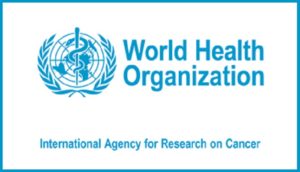September 7, 2017 – San Diego, CA. Roundup weed and grass killer is the most widely used herbicide in the world. Manufactured by Monsanto Company, Roundup is used commercially on farms and fields and by consumers on their lawns and gardens.
The main ingredient in Roundup — called glyphosate – was determined to be “probably carcinogenic to humans” in March 2015 by the 
Drawing on published reports in scientific literature from independent researchers, IARC specifically linked exposure to Roundup and glyphosate to non-Hodgkin lymphoma (NHL) and several other blood cancers, including B-cell lymphoma, a subtype of NHL.
IARC’s assessment that glyphosate “probably” causes cancer in humans is significant because farmers and agricultural workers are not the only ones at risk for exposure. Residue from Roundup’s main ingredient glyphosate can be found in the air we breathe, the water we drink and the food we eat.
Recent findings show academic papers validating Roundup herbicide were authored by its employees.
Currently Monsanto is facing more than 240 lawsuits in U.S. District Court in San Francisco filed by people who allegedly now have non-Hodgkin lymphoma from exposure to Roundup, combined with other states who have now have estimated 1,100 related cases.
These high profile cases have been combined into an MDL (Multidistrict litigation) under Judge Vince Chhabria. Recently Judge Chhabria ruled that key documents that were obtained by the plaintiffs through the discovery phase could be unsealed, over Monsanto’s objection.
What was it in these newly unsealed documents that have Monsanto so worried?
Monsanto has always touted its Roundup product as safe when used as directed. The company claims that “independent” studies have vetted the chemical glyphosate and deemed it safe. But now new evidence in the form of these unsealed documents (over 70) is now under scrutiny.
Internal company emails released on August 1 by the plaintiffs’ lawyers indicate that Monsanto worked closely with a consulting firm to induce a scientific journal called Critical Reviews in Toxicology to publish an “independent” review of Roundup’s health effects, and it looks like this really wasn’t so independent at all.
This review and others published in September 2016 was formulated to counter the 2015 assessment (below) by the International Agency for Research on Cancer (IARC), part of the World Health Organization.
Drawing on published reports in scientific literature from independent researchers, IARC specifically linked exposure to Roundup and glyphosate to non-Hodgkin lymphoma (NHL) and several other blood cancers, including B-cell lymphoma, a subtype of NHL.
Monsanto Teams up with Intertek Group Plc.
Consulting company Intertek Group Plc, was paid by Monsanto to craft a “review” called “An Independent Review of the Carcinogenic Potential of Glyphosate”
It was IARC’s assessment that glyphosate “probably” causes cancer in humans is significant because farmers and agricultural workers are not the only ones at risk for exposure. Residue from Roundup’s main ingredient glyphosate can be found in the air we breathe, the water we drink and the food we eat. This led California to list glyphosate as a known human carcinogen. This now had the effect of launching 1,000 lawsuits in both state and federal courts from people claiming that glyphosate caused them to suffer non-Hodgkin lymphoma.
According to the review’s Declaration of Interest statement: “Neither any Monsanto company employees nor any attorneys reviewed any of the Expert Panel’s manuscripts prior of submission to the journal.” However the internal company emails illustrate something entirely different.
Monsanto scientist helped organized, reviewed and edited the drafts by the outside experts.
Chief of regulatory science, William Heydens vetoed panel requests to downplay “inflammatory” criticisms of the IARC. Panelist John Acquavella, who is an epidemiologist in Denmark, stated in a February 2016 email “An extensive revision of the summary article is necessary.”
With further edits made by Haydens, Acquavella was satisfied and then went on to bill the company $20,700 for his month’s work on the piece.
Genna Reed, a noted scientist and policy analyst at the Union of Concerned Scientists’ Center for Science and Democracy who knows about Monsanto’s editorial involvement said: “in direct opposition to their disclosure”, and further says “It does seem pretty suspicious”.
Monsanto responds by saying it was blindsided by these disclosures and wanted them purged from the web, and the following statement was made from Monsanto’s Partridge: “It’s unfortunate these lawyers are grandstanding at the expense of their clients’ interest.”
Next up for Monsanto – Did the EPA Help Slow Herbicide Review?
Check back to this blog for that story.
If you or someone you love was exposed to Roundup and were diagnosed with non-Hodgkin lymphoma or another blood cancer, you may be entitled to compensation. The legal team at Hood National Law Group is ready to answer your questions and help you determine if your case qualifies for a Roundup Lawsuit.
Sources:
https://www.bloomberg.com/news/articles/2017-08-09/monsanto-was-its-own-ghostwriter-for-some-safety-reviews
http://www.tandfonline.com/doi/full/10.1080/10408444.2016.1214677




